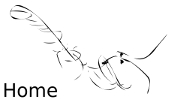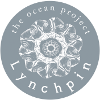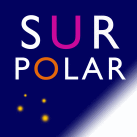Living Data:
Relationship
2017 Conversations
Disclaimers, Copyrights and Citations
Conversations/Index 2010 2011 2012 2013 2014 2015 2016 2017 2018 2019 2020 2021 2022 2023 2024
"Few will doubt that humankind has created a planet-sized problem for itself.
No one wished it so, but we are the first species to become a geophysical force,
altering Earth's climate, a role previously reserved for tectonics, sun flares, and glacial cycles."
E. O. Wilson, 1998. Consilience: The Unity of Knowledge
p. 277-278
Making as Thinking
Eveline Kolijnidentifies as a maker and a thinker.
Here we talk about our collective, creative, global practice,
and the power of art to give meaning to science.
We have just spent three days together with scientists and other artists in Sydney.
Finally I get to know this Canadian based artist in the flesh.
I first met Eveline in 2012, in Email conversations with Sue Anderson,
Co-ordinator of Lynchpin: The Ocean Project.
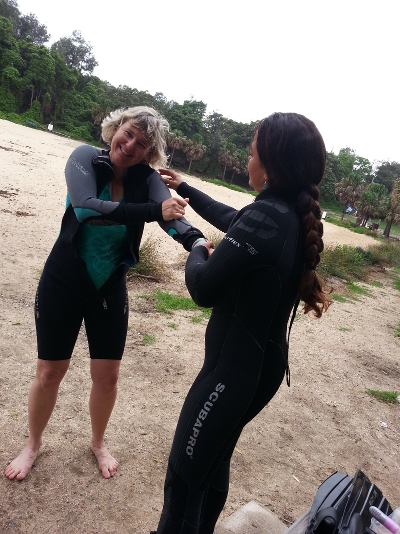
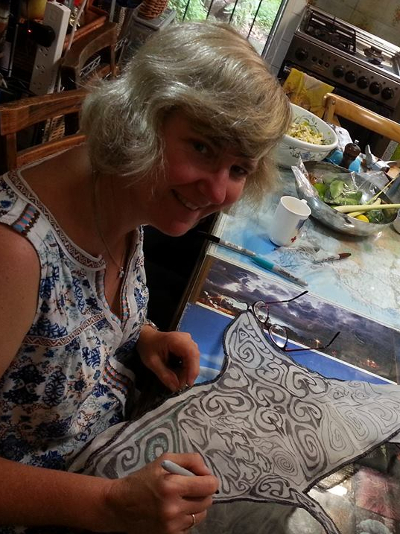
Left: Canadian-based artist Eveline Kolijn with Brazilian-based scientist Ericka Coni at Shelly Beach, Sydney, where Ericka collects data to find out if changes in some fish communities are associated with rising sea temperatures.
Right: Eveline Kolijn contributes designs to Shark, a Living Data project for honouring these top predators that inhabit coastlines of all continents except Antarctica, and to honour their role in maintaining the health of marine ecosystems, including the systems that support us. Eveline's design for the shark skin is inspired by her recent experience of New Zealand where she worked with artists from around the world to share ideas and skills.
Photos: Lisa Roberts
TRANSCRIPT
Sydney International Airport, Wednesday 22nd March 2017
Eveline Kolijn (EK) and Lisa Roberts (LR):
EK
Yesterday evening at your party I was talking with one of the scientists about inspiration for artists and inspiration for scientists too, and that the heart, the emotion, something that interests you, that interest is an emotion. And that's the starting point that sparks curiosity to want to investigate this thing, either through art or science. That's where the heart comes in, as an inspiration. We talked about how often an idea is something intuitive. It's not something you reason towards. It pops up. And it's this idea that triggers a reaction. It could be excitement. It could be fear. It can be an idea that makes you afraid. It's an emotive reaction that's in the gut and the heart. And then the brain kicks in, like, 'OK, wait a minute, let's look into this'. And then you start applying your discipline.
I think it's fabulous and something of our digitally connected age that we're able to meet. So we connected via the Internet. I really do think there's a growing interest in the art-science connection, and art-science collaboration. What I see from the arts side of these collaborations is that they often veer towards very heavy technology-based projects. So generative interactive things, with digital systems that generate visual imagery, or audience responses. And I think that what you're doing with Living Data is different, and it's something that interests me more. Yes, it's more hands-on, more about making. Whereas with the generative digital systems, as the artist you become the computer programmer, and that's not what I am. It's not what I want to be. I want to be responding with my visual art form of print-making to the science. So that's a different kind of thing, when the artist is a sort of scientist themselves. At the same time, I really love to participate from a distance, because I don't have access like that, where I live. So via the Internet that's possible.
I think there's a growing need for both the art and science disciplines to have these collaborations. But it's still difficult to set up. Although you don't have to be the scientist yourself, but as an artist it is crucial that we respect and understand the science sufficiently in order to make a response that's meaningful to the science, that is respectful and doesn't create really wrong reflections of the science. That's awful for the scientist.
LR
Could another way of expressing that be to say that the art is a response to the knowledge we've gleaned from science - from the collective, peer-reviewed science that's a creative process in its own right, from doing and thinking. And that when we're being artists, it's a different part of our selves that we express, as individuals. Whereas for science the language must be as unambiguous as possible, so it's universally understandable amongst the scientific community - that's the strength of science, surely - but it's also its limitation when it comes to scientists making sense to people outside their discipline.
This is why we need the art in all its diversity of personal expression, so stories we know from science can be made appealing to a wide range of human experiences. Art can add depths of meaning to the science; it can stimulate our sensory apparatus, each uniquely programmed by our training and experience. And because as artists we're each different in our expressions, between us we create a collective body of work. This makes it likely that someone somewhere is going to get the knowledge gleaned from science, by identifying with how the stories are told.
EK
I think you're right about that. And I haven't thought if it that way, like it's kind of the opposite approach, because as a scientist you have to master the methodology that is as objective as possible and then universal and repeatable, whereas as an artist you're actually doing the exact opposite, because it's your personal response and only you can make that response as an artist. Every artist will do it differently. But therefore you have that freedom that art give, to approach it from these angles, that makes the science maybe more interesting to the public, who say about the science, 'I don't get it', but they may get the art that's very subjective. Variety of responses to the science can sort of shine through some big issues, or highlight them, and evoke different levels of feeling.
I think the important thing that the art can do is not necessarily to brainerly explain, but to create this empathy, this empathic connection, and so the science also becomes more important to the viewer, because there's this emotional gut reaction ... Oooh, sharks! That's why... now I get it, oh my gosh, if we're killing all the sharks, what is that doing to the oceans? The whole issue of oceans and climate change is then maybe less abstract, and more personal and thought through. And that's what we want to do, to think through.
LR
Do you think more artists, including scientists who are also artists, are recognising more and more that we are part of nature, and that it's through the arts that we recognise that connection?
EK
I hope so. In the whole concept of biosphere we are part of climate change. And this is certainly one of my important messages.
I think yes and no. I think there's a growing group of people who definitely get that. You know, the environmental groups, and I certainly think the younger generation is getting that a lot more. And there are people who still don't care, they don't see that connection. They see nature as very separate. I have difficulty in understanding that way of seeing the world.
Once you see how connected everything is and that we're part of the whole system, it's hard to not see it any more. But yes, maybe that recognition is growing. I think traditional culture has always understood connectivity and that we have lost that understanding in our society and we may be rediscovering it, how connected it actually is, and that might feed into this movement that I globally see, of traditional cultures reasserting themselves and becoming more vocal in propagating their world view so that doesn't get completely obliterated, and that there might be a meeting of minds between the Western people who do understand that connectedness, and peoples from more traditional cultures, and that we try and grow that voice.
LR
Traditional indigenous knowledge has been passed down through stories, stories told through through making, singing and dance. It's a community phenomenon. And that's what we've lost with the segregation of the arts and the sciences. But do you see a return to that, through some of the projects you've been involved with, where you're working more and more with groups of people from different disciplines and cultures?
EK
Yes! And there's certainly, I also think, a need for it. I mean you see Western people are joining drumming circles and things like that, you know, which are in our cultural tradition, but there's definitely a need to get that connection going, and to understand things at all levels, so indeed through expression of movement, and of singing, and all these things, yes. I still think it's a small group, but it is out there. So yeah, I hope to contribute to it.
LR
Thanks Eveline.
EK
Sure.
![]()
